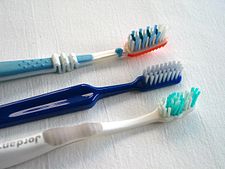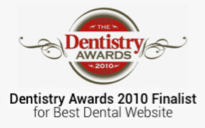How to Pick a Toothbrush
 Heading down the toothbrush aisle of the store can be intimidating. So many shapes, sizes, and colors … and promises of whitening, cleaning, and fresh breath! With so many choices, it’s easy to get overwhelmed and confused about what is the right toothbrush for you.
Heading down the toothbrush aisle of the store can be intimidating. So many shapes, sizes, and colors … and promises of whitening, cleaning, and fresh breath! With so many choices, it’s easy to get overwhelmed and confused about what is the right toothbrush for you.
Have no fear, we’re here to help! There are some toothbrush basic tips that will make your toothbrush selection an easier process 🙂
Most dentists agree that soft is better when it comes to toothbrush bristles. Soft-bristled toothbrushes are most effective at removing plaque and small particles of food from your teeth. SOft bristles are gentler on your gums as well – when you brush your teeth your goal is to clean them, not beat up on your gums until they bleed. And, small-headed brushes are best (even for adults), since they can better reach all areas of the mouth, including the hard-to-reach back teeth.
Remember: the Softer the better. It might seem like a toothbrush with stiff bristles is the right choice — after all, many of your household brushes probably have rigid bristles, making cleaning faster and easier. But the opposite is true when it comes to picking a toothbrush. And the reason why is simple: Softer bristles are easier on your gums. When you brush, you want to clean your teeth, not make your gums bleed. Softer is better, so you’ll want to choose a brush that is a labeled ‘medium’, and only choose one labeled as ‘soft’ if you have very sensitive teeth/gums or your dentist recommends it. Remember that a toothbrush with stiff bristles is more likely to cause bleeding gums.
For many, a powered toothbrush can be a good choice. In some cases, it can do a better job of cleaning teeth, particularly for those who have difficulty brushing or who have limited manual dexterity. However, you do not have to have a powered toothbrush to have a superior cleaning — with the right toothbrush and technique your teeth will be just as clean using a manual toothbrush as a powered one.
Nowadays there are a lot of all-natural dental products available, including “Natural Toothbrushes” with bristles made from plant material. While these sound interesting, keep in mind that there isn’t sound research to prove their effectiveness (or any harm they may cause). Your dental hygiene directly relates to your overall health and it is best not to take any chances when it comes to your overall well-being, so until more research can be done it is best to go with nylon, not natural.
Now that you know what size and kind of bristles for your toothbrush head, the next thing is the handle. There are so many choices of toothbrush handles on the market including various shapes, sizes, colors, and so on. Often marketed to pique your interest more than the benefit of your health. Be sure to choose first based on your needs and comfort, and second on style. You’ll want to be sure to have a toothbrush handle that is comfortable to hold and is easy for you to maneuver in your mouth. It’s also helpful to select one with a grip to prevent slipping.
Toothbrushes wear out. Since you brush regularly, at least 2 times per day, it is normal for toothbrushes to wear out with use. Wear is normal, but can cause ineffectiveness as well as become a breeding ground for bacteria, germs and fungus – yuck! You should plan on replacing your toothbrush every 1 – 3 months as well as after a cold or illness.

 Smile in a day implants in Preston
Smile in a day implants in Preston
 How much is a dental implant?
How much is a dental implant?
 How to achieve a perfect smile in just six months
How to achieve a perfect smile in just six months



